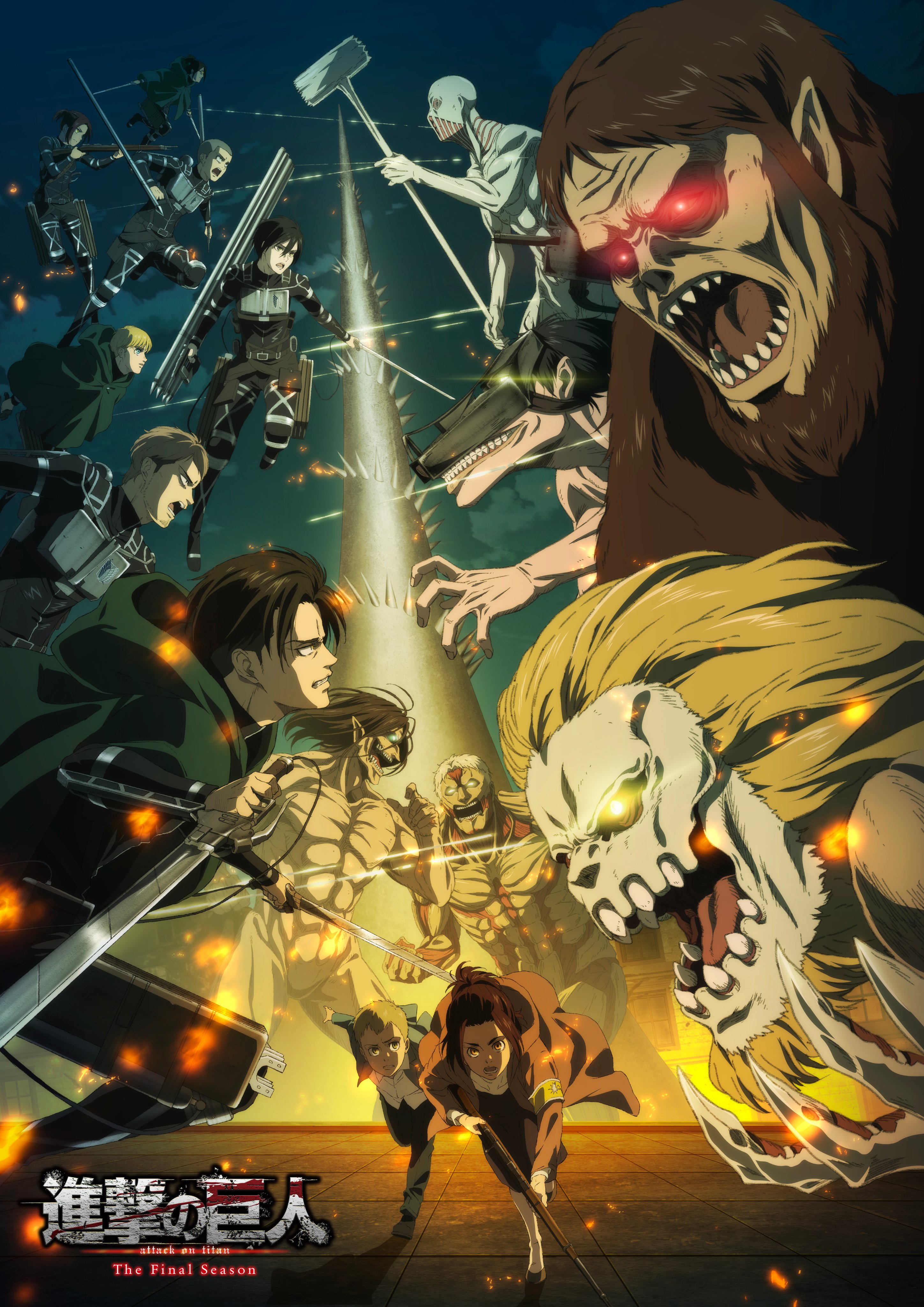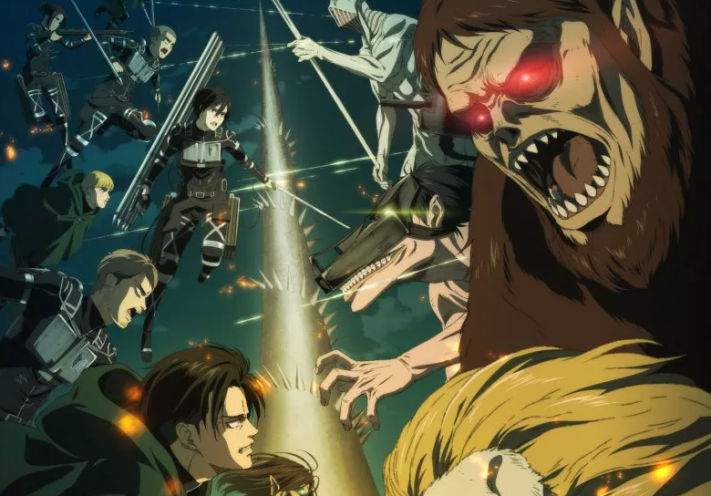
"Attack Mankind" doesn't sound that good.

I believe this is to separate the two different pieces in the one track, with the first half of the track being titled "Counter", and the second being titled "Attack Mankind". For example, this is most commonly used when western names are written in Japanese, where the ・ separates the first name and the last name to make it clear to Japanese people where the name ends. The ・ symbol in the title is often used to separate two different words. This is what we in the Sawano Discord chat call a "double track", where Sawano includes two completely different pieces of music in the same track on the album. However, this track has two unique sections to it. Same reasons for the first track of this album, ətˈæk 0N tάɪtn. This is the Japanese name for the 3D Maneuver Gear, or Vertical Maneuvering Equipment.

Put together, you get the title "立体機動", which is said as "Rittai Kidou". The word "body" in kanji, is written as 体, while the word "motion" can be represented with the character 動. To decode this Sawanised title, all you need to do is change the English words to their corresponding kanji/Japanese words. Means "3D Maneuver Gear", or "Vertical Maneuvering Equipment" depending on what you call it. Literally translated, this means "Water of the Eyes", but as literal as this is, it makes more sense to just translate it as "Tears", even if there is a different Japanese word for tears, similar to English. The romanisation for this is "Me no Mizu". In Sawano's music, a dash, -, is often considered as the particle の (no), which indicates possession similar to an 's, in English. The word "eye" in Japanese, can be written as 目 (me). This is a little more complicated than what you might think though. Means "Water of the Eyes", or just "Tears" which is likely the intended meaning behind the title. My personal favourite track of the album. Vocal tracks like these typically have "normal" track titles, although for Attack on Titan specifically, there are a few (like ətˈæk 0N tάɪtn) that aren't "normal". "They messed up the stress marks, made a stylistic substitution for "on", and omitted the schwa in "titan", but it's basically ordinary IPA." "This one's actually just an attempt at phoneticization using something mostly resembling IPA, which would normally be: əˈtæk ɒn ˈtaɪtən" This track has vocals by Mika Kobayashi, with lyrics by Rie.ĮDIT 4: Credit to /u/o-temoto for this passage: Most people should be able to figure this out, but as far as I'm aware, it doesn't spell out any kind of pronunciation of the words, rather it is more just using characters from a different language to make it look like the words "Attack on Titan". The very first OST release for Attack on Titan. Without further ado, I'll start from the beginning. I'm sure not all of these will be "correct", and I will try to mark any spoilers where necessary. I may use this term in this post.Īnyway, I'm here to break down the meaning every track title from each Attack on Titan soundtrack that has been released. The people in the Hiroyuki Sawano Discord Fan Server and I often refer to these "gibberish" titles as being "Sawanised". If you follow Hiroyuki Sawano's works, you'll notice that most of his soundtracks that were released post-2010, or more specifically post-Gundam Unicorn, have these kinds of titles. I can't find the exact quote currently, so don't assume this is the exact words that Sawano himself said. His reasoning for this? Because it would find it boring, or uninteresting.
He has stated in many interviews that he doesn't enjoy giving his music regular titles too often. Meet Hiroyuki Sawano, the composer behind Attack on Titan's music. Or well, in some cases there's no real meaning at all. What many people don't know, however, is that all of these "gibberish" titles, properly decode into something that gives a proper meaning to a song title.

For anyone familiar with Attack on Titan's soundtrack, they would all know that most of the music made for Attack on Titan have "gibberish" titles, to quote someone else.


 0 kommentar(er)
0 kommentar(er)
